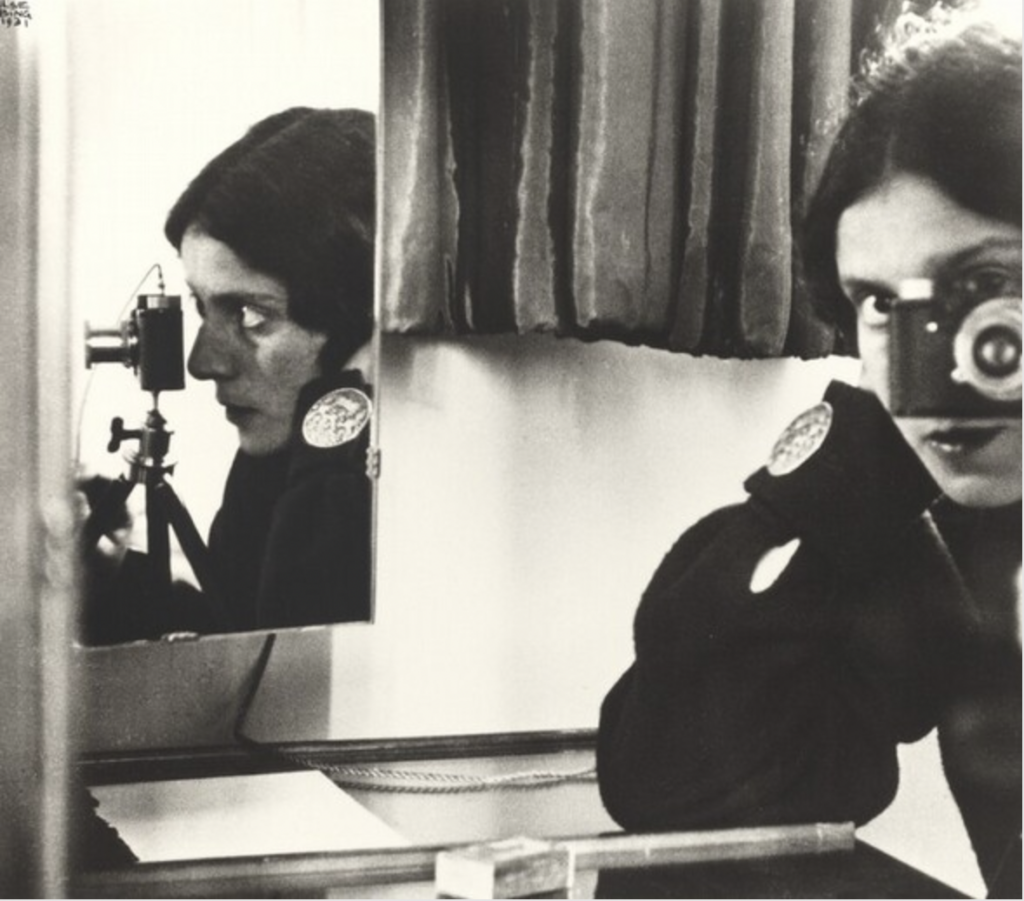Self-portrait with Leica

I love this self-portrait by Ilse Bing. She was one of the leading European photographers of the interwar period — as this V&A summary demonstrates.
Quote of the Day
“What you think is the point is not the point at all but only the beginning of the sharpness”
- Flann O’Brien
Musical alternative to the morning’s radio news
Alison Krauss | When You Say Nothing At All
Magical!
Long Read of the Day
AI-tocracy
By Martin Beraja, Andrew Kao, David Y. Yang and Noam Yuchtman
An NBER working paper that is both fascinating and depressing. The authors argue that the conventional wisdom which holds that autocracies are generally bad for innovation is wrong, or at least not universally the case. Their conclusion is that some advanced technologies can be sustained under autocracy when the tech and the authoritarian leadership mutually reinforce each other.
There’s a free pdf download if you’re a newcomer to NBER. And if you’re too busy, here’s the Abstract:
Can frontier innovation be sustained under autocracy? We argue that innovation and autocracy can be mutually reinforcing when: (i) the new technology bolsters the autocrat’s power; and (ii) the autocrat’s demand for the technology stimulates further innovation in applications beyond those benefiting it directly. We test for such a mutually reinforcing relationship in the context of facial recognition AI in China. To do so, we gather comprehensive data on AI firms and government procurement contracts, as well as on social unrest across China during the last decade. We first show that autocrats benefit from AI: local unrest leads to greater government procurement of facial recognition AI, and increased AI procurement suppresses subsequent unrest. We then show that AI innovation benefits from autocrats’ suppression of unrest: the contracted AI firms innovate more both for the government and commercial markets. Taken together, these results suggest the possibility of sustained AI innovation under the Chinese regime: AI innovation entrenches the regime, control stimulates further frontier innovation.
If you wanted an argument for why facial recognition is a toxic technology, then this is a pretty good one.
Tech can’t fix the car problem
Good piece by Shira Ovide with interesting references. She’s been reading Peter Norton’s Autonorama: The Illusory Promise of High-Tech Driving.
Our health and that of the planet will significantly improve if we switch to electric cars. They are one focus of the global climate summit underway in Glasgow. And taking error-prone drivers out of the equation could make our roads much safer. But making better cars isn’t a cure-all.
Popularizing electric vehicles comes with the risk of entrenching car dependency, as my New York Times Opinion colleague Farhad Manjoo wrote. Driverless cars may encourage more miles on the road, which could make traffic and sprawl worse. (Uber and similar services once also promised that they would reduce congestion and cut back on how many miles Americans drove. They did the opposite.)
The future of transportation needs to include more energy efficient and safer cars. But Dr. Norton also said that it would be useful to redirect money and attention to make walking, cycling and using shared transportation more affordable and appealing choices.
EVs are wonderful in their way. But they’re still cars. They’re so good, in fact, that they might make us even more infatuated with the automobile.
My commonplace booklet
Eh? (See here)
Are AirPods Out? Why Cool Kids Are Wearing Wired Headphones
The Wall Street Journal confirms that I am not cool. But then, I never was.
Also, none of my current Apple mobile devices has a headphone port.
This Blog is also available as a daily email. If you think that might suit you better, why not subscribe? One email a day, Monday through Friday, delivered to your inbox. It’s free, and you can always unsubscribe if you conclude your inbox is full enough already!
